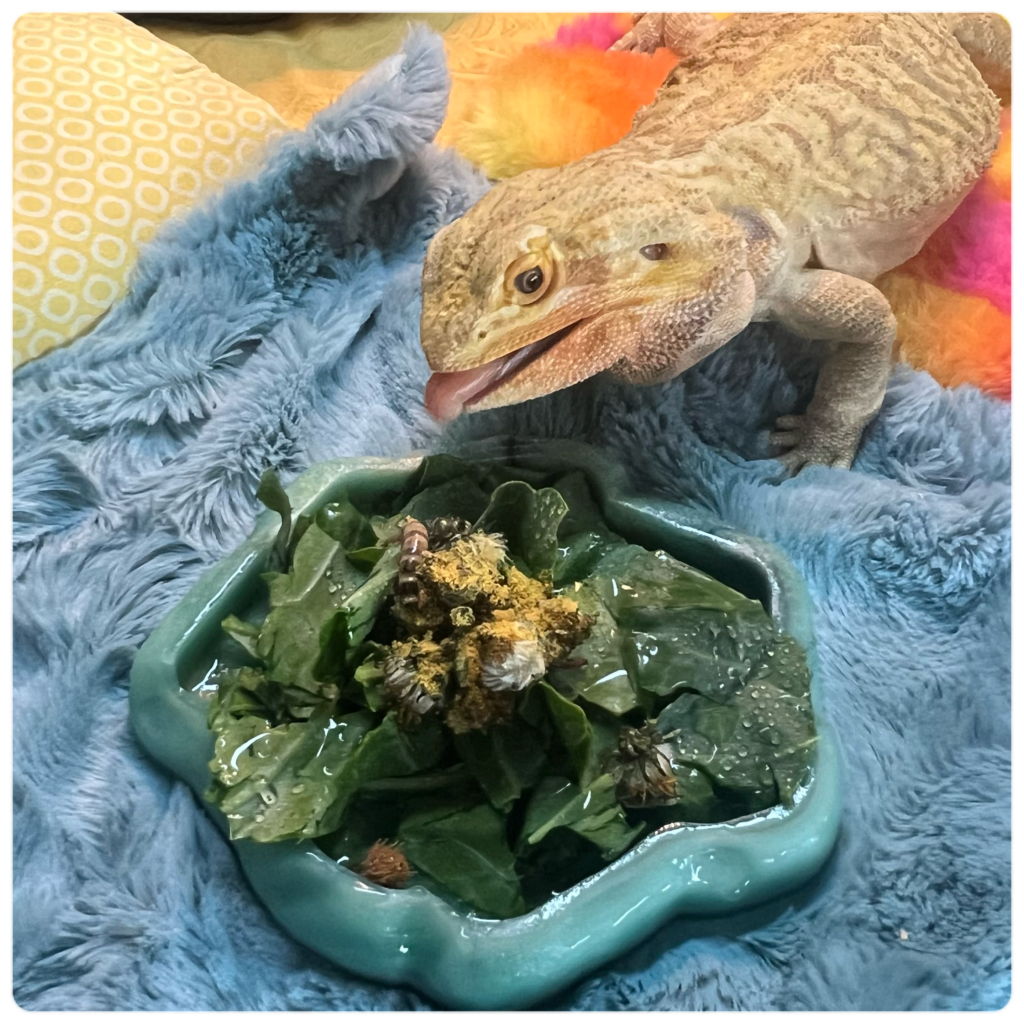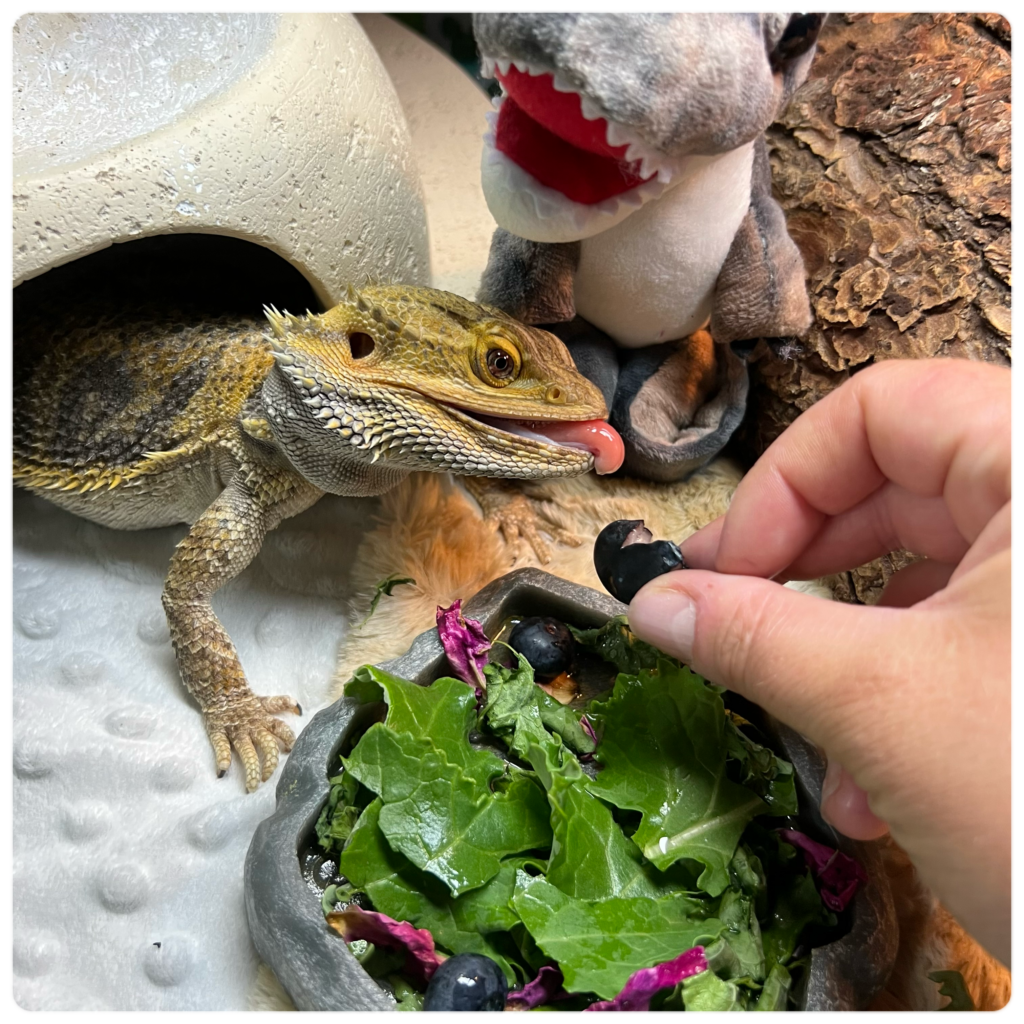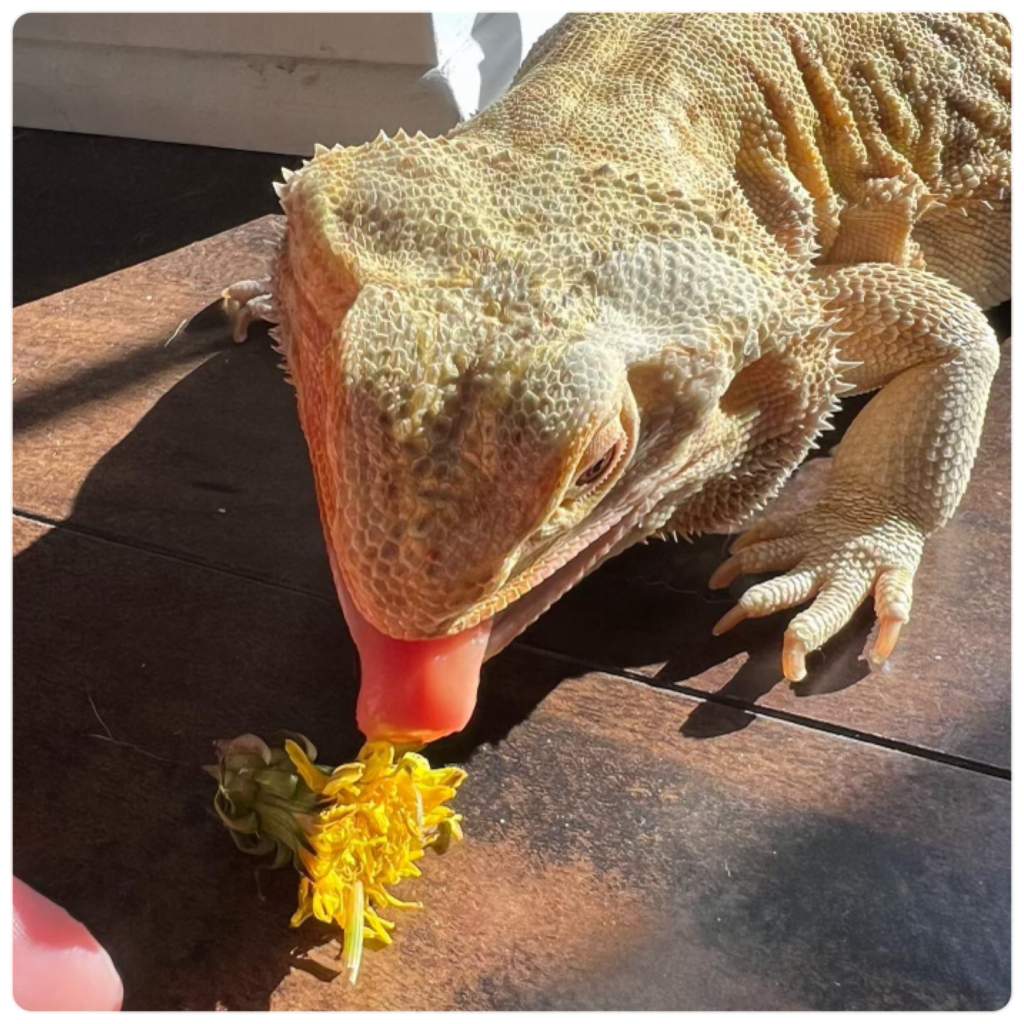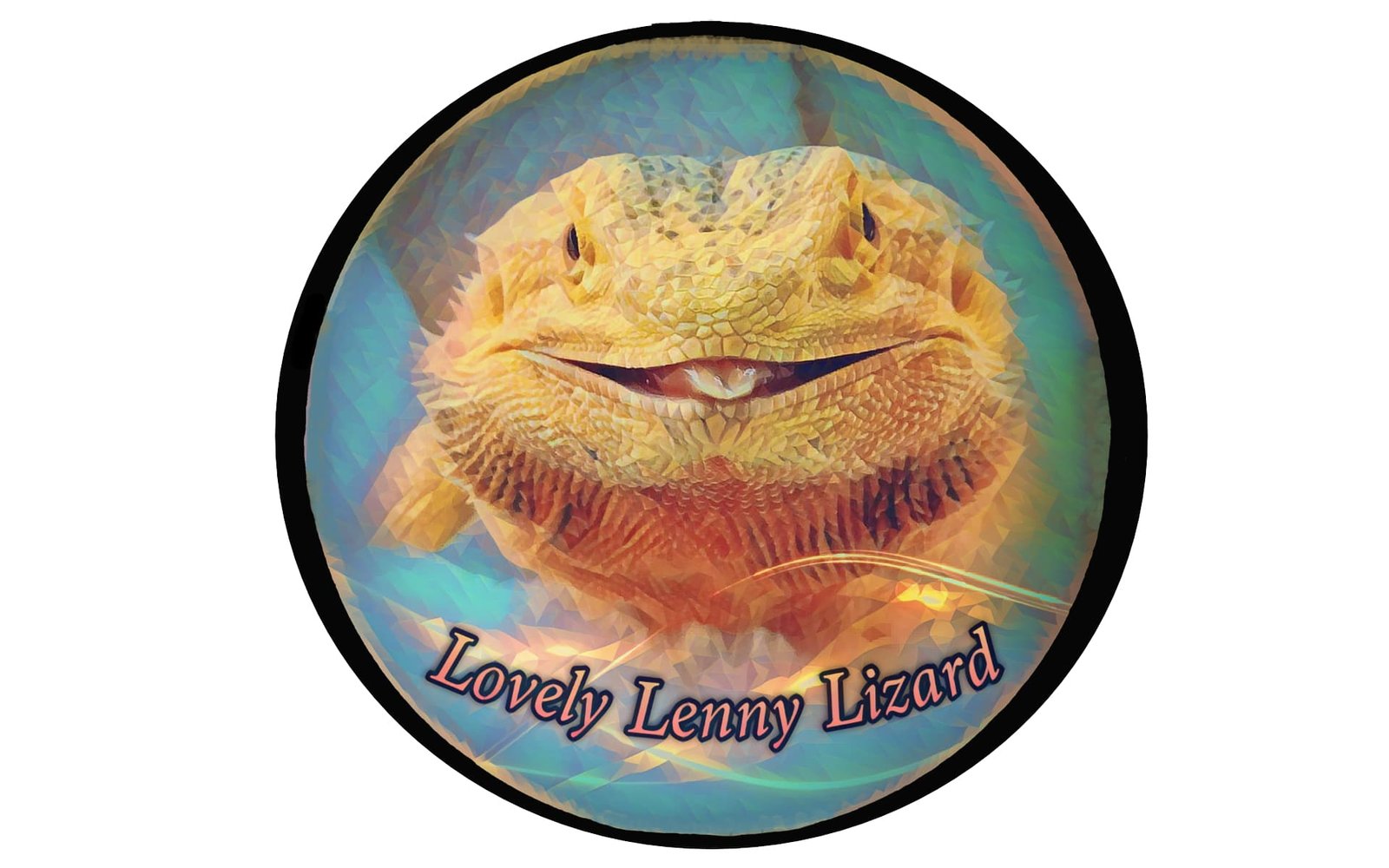How to Encourage Healthy Eating Habits in Bearded Dragons.
Is your beardie having a difficult time getting off the bugs?
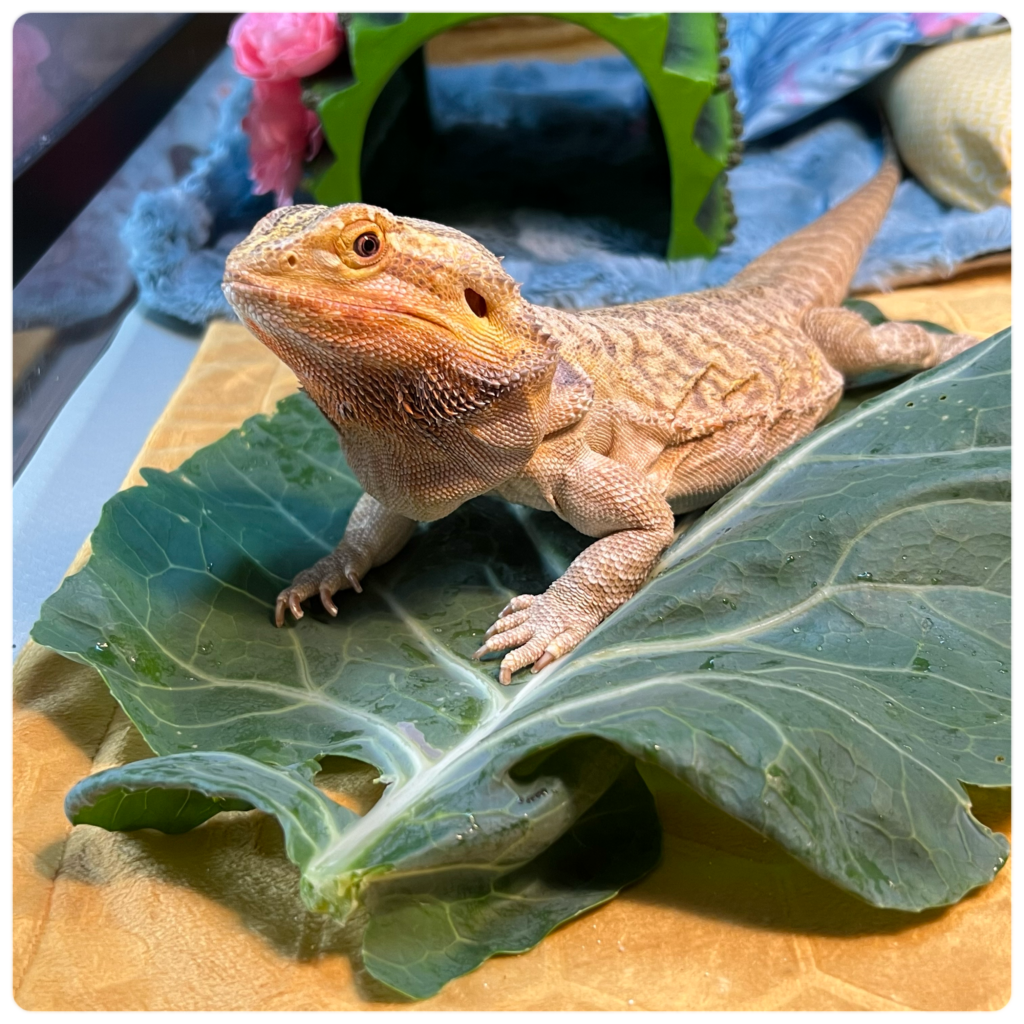
Here are some tips and tricks to help your little one live a healthier life!
First, let’s look at how we got here.
Bearded dragons may start eating poorly for several reasons. Here are some common causes. Is your dragon impacted by any of them?
Incorrect temperature:
- If the enclosure is too cold or too hot, it can affect their appetite
- Improper basking temperatures can disrupt digestion
Stress:
- Changes in environment or routine
- The presence of other pets or loud noises
- Overcrowding or inappropriate tank mates
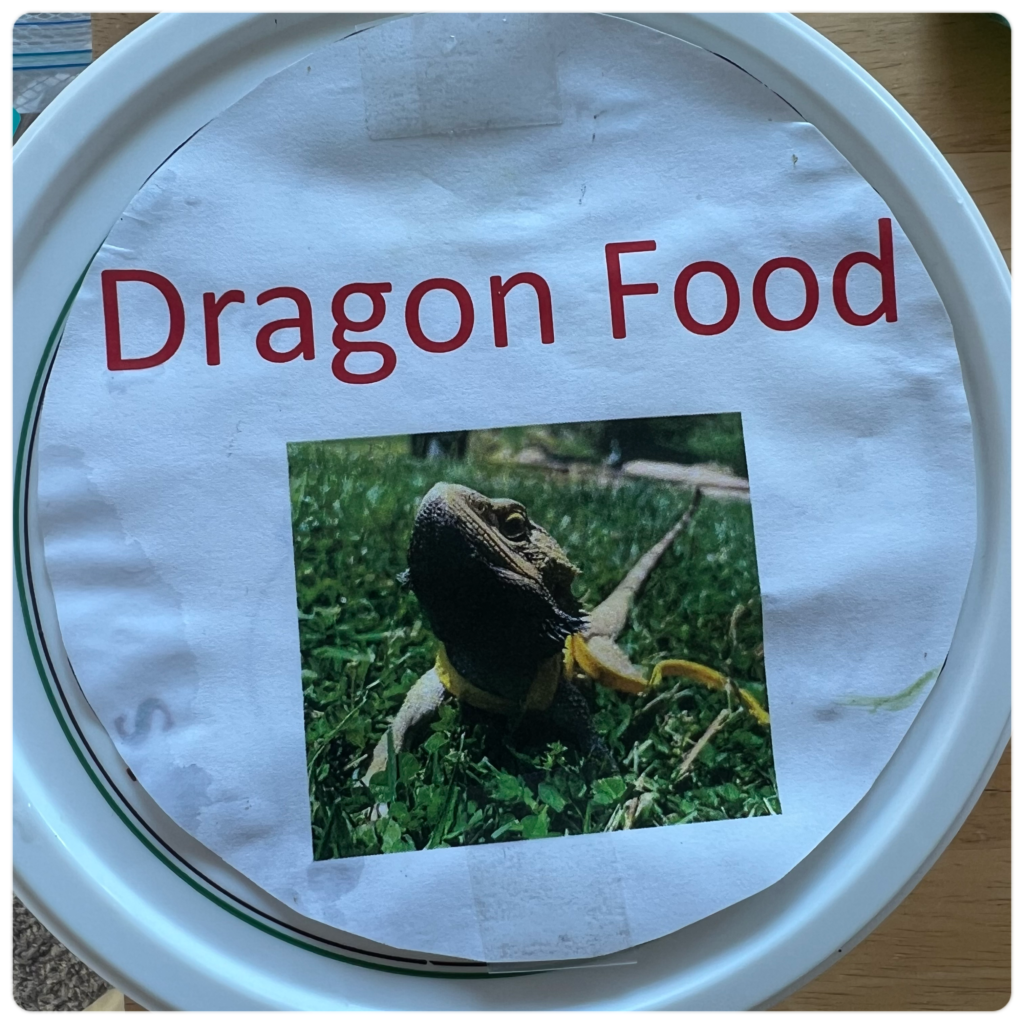
Illness:
- Parasitic infections (e.g., pinworms)
- Respiratory infections
- Mouth rot or dental issues
Impaction:
- Digestive blockage from ingesting substrate or large food items
Seasonal changes:
- Brumation periods can reduce appetite
- Breeding season can affect eating habits
Age-related changes:
- Older dragons may naturally eat less
- Juveniles may become pickier as they grow
Overfeeding:
- Offering too much food can lead to reduced appetite
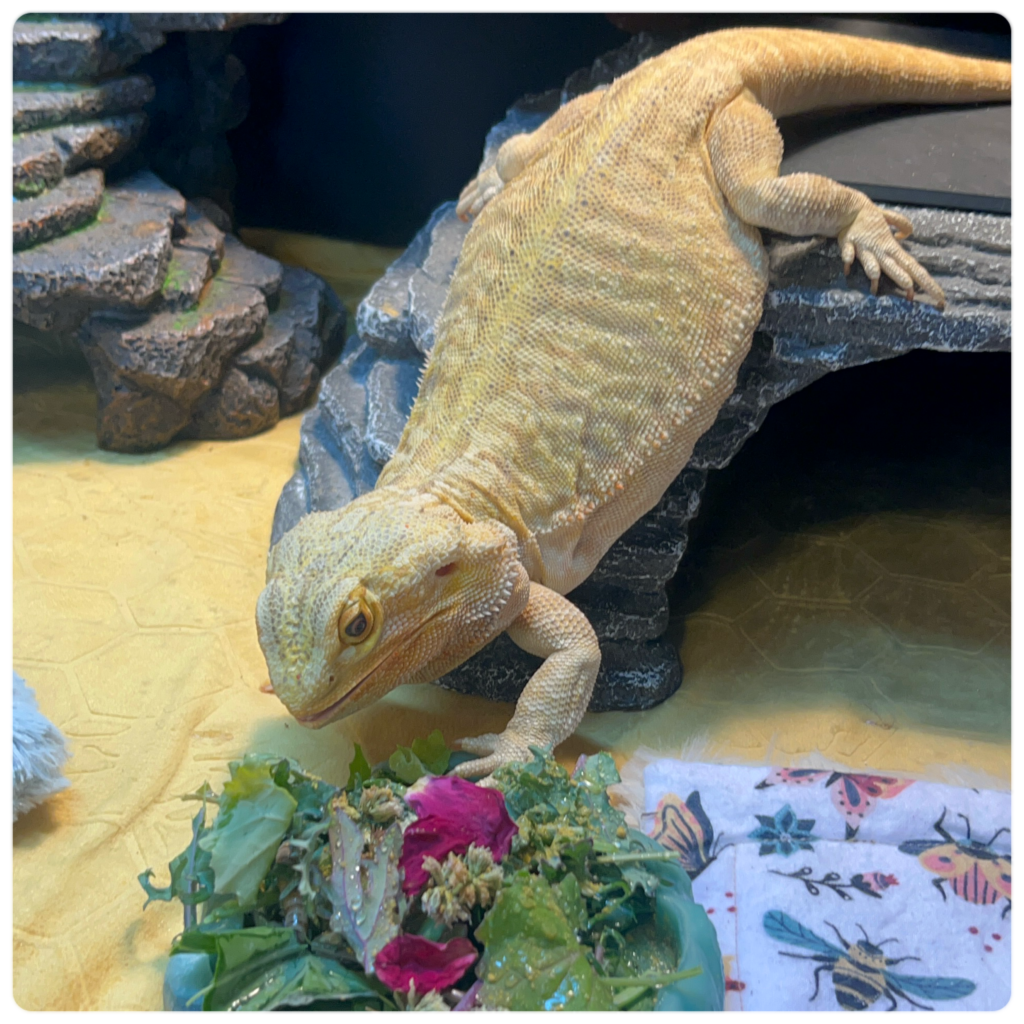
Poor diet variety:
- Lack of diverse food options can cause boredom or nutritional imbalances
Improper lighting:
- Insufficient UVB exposure can affect calcium metabolism and appetite
Dehydration:
- Can lead to reduced appetite and other health issues
Shedding:
- Some dragons eat less during the shedding process
By looking at what may have caused the root of the issue we can change key features to help make your dragon more willing to eat foods that they may not always enjoy but are good for them. Much like a human child with broccoli, it’s not always fun to eat vegetables but it is a necessity to live a long and healthy life.
This is one of many responsibilities we have as caretakers of these amazing animals!
Now that we have looked at the environment and the husbandry let’s take a look at how to help your beardie eat their greens!
Here are some tips and strategies to encourage healthy eating habits in bearded dragons:
Variety is key:
- Offer a diverse range of vegetables and greens
- Rotate foods to prevent boredom and ensure a balanced diet
Proper preparation:
- Chop or shred vegetables into manageable sizes
- Lightly steam tough greens to make them easier to eat
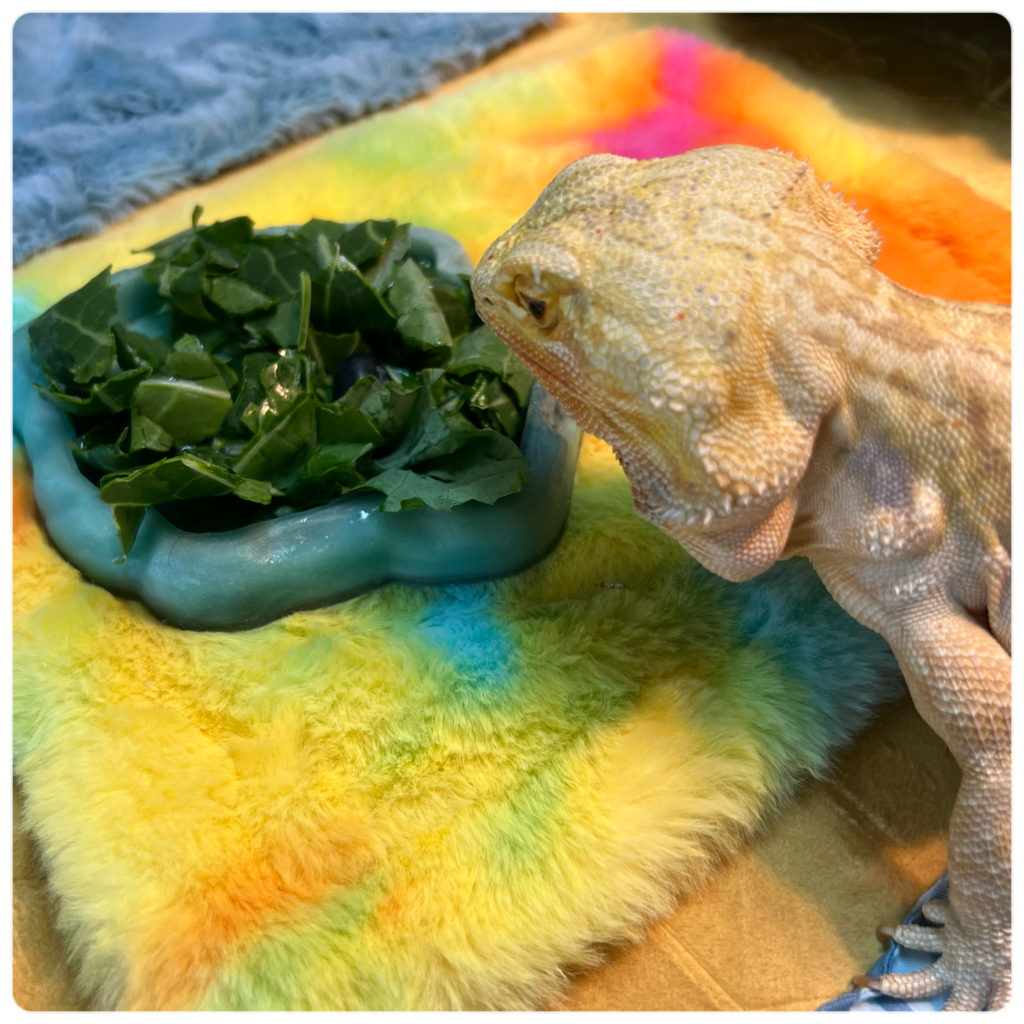
Timing matters:
- Feed greens earlier in the day when bearded dragons are most active
- Offer insects later to encourage the consumption of vegetables first
Temperature considerations:
- Ensure the enclosure is at the proper temperature for digestion
- Warm food slightly to increase its appeal
Hydration tricks:
- Mist greens lightly to make them more appealing and increase hydration
- Offer water-rich vegetables like cucumber occasionally
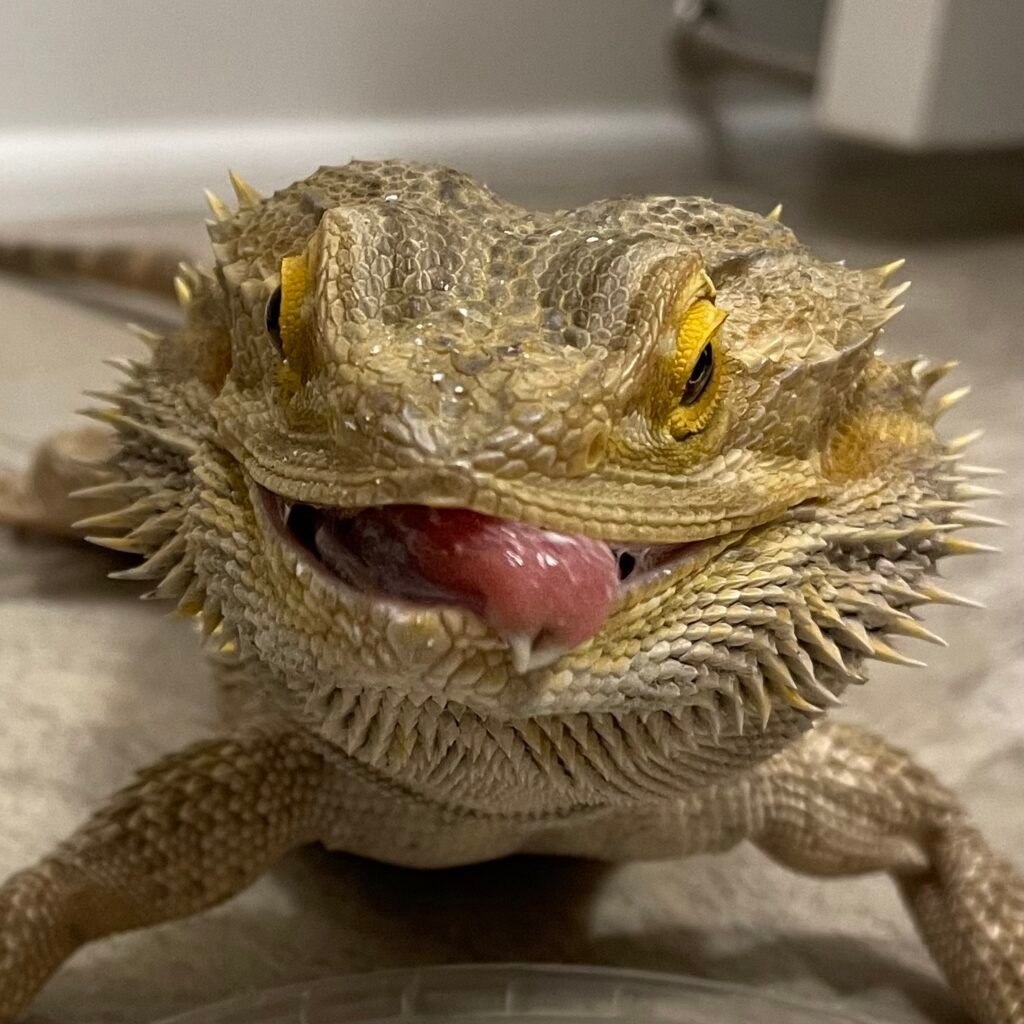
Use “gateway” foods:
- Mix favorite foods with new or less preferred items
- Gradually increase the ratio of greens to favorites
Interactive feeding:
- Hand-feed occasionally to build trust and encourage eating
- Use feeding tongs to simulate movement and spark interest
Environmental enrichment:
- Place food in different locations to encourage foraging behavior
- Use feeding platforms or puzzle feeders for mental stimulation
Lead by example:
- Some bearded dragons respond to seeing their owners “eat” the greens (pretend to nibble)
Gut-loading insects:
- Feed insects nutritious foods before offering them to your bearded dragon
- This indirectly increases the nutritional value of the insect portion of their diet
Supplement wisely:
- Use calcium and vitamin supplements as recommended by a vet
- Avoid over-supplementing, which can lead to health issues
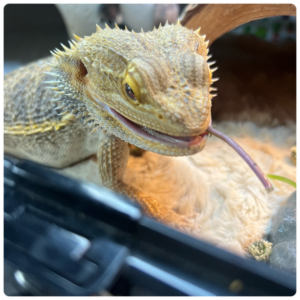
Be patient and consistent:
- Dietary changes can take time
- Maintain a regular feeding schedule
Lenny and Sol (who are full-grown bearded dragons, babies not included in the following schedule) have a feeding schedule of:
- Greens: Monday, Thursday, Saturday
- Protein with Calcium and Supplements: Tuesday and Friday
- No feed day: Wednesday
- Sunday: Surprise day- Food with enrichment ie Blueberry racing, Rasberry hide and seek etc.
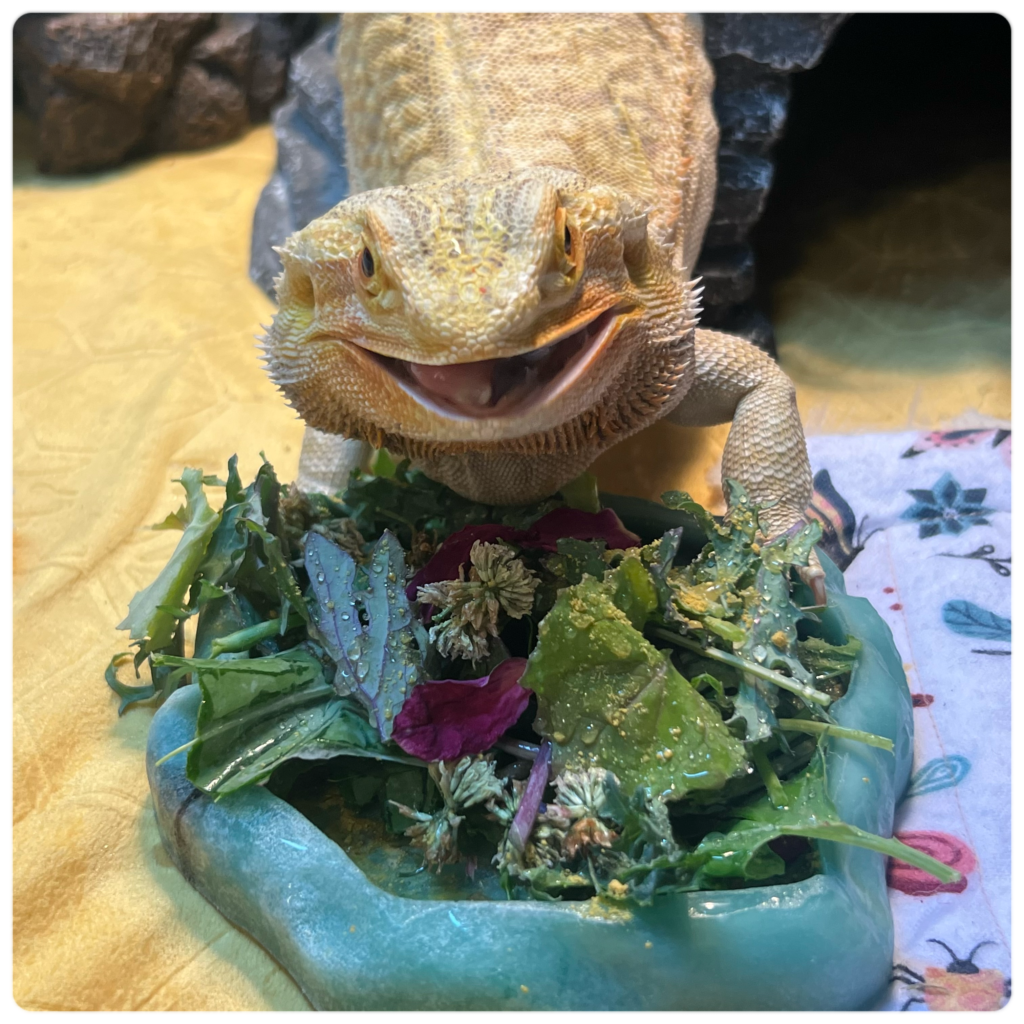
Regular health check-ups:
- Consult with a reptile vet to ensure your dragon’s diet is meeting all its nutritional needs
Remember, each bearded dragon is an individual with its own preferences. It may take some trial and error to find what works best for your pet. If you’re having persistent issues with your bearded dragon’s diet, it’s always best to consult with a veterinarian specializing in reptiles.
